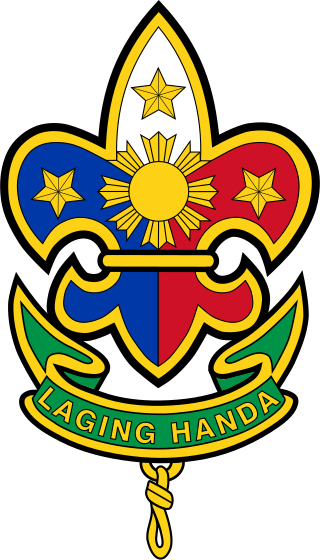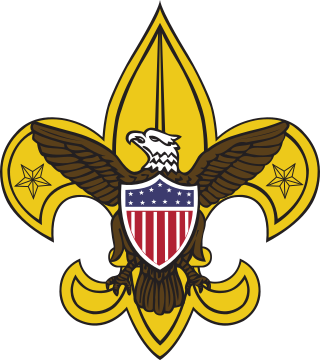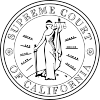
The Boy Scouts of America is one of the largest scouting organizations and one of the largest youth organizations in the United States, with about 762,000 youth participants. The BSA was founded in 1910, and since then, about 110 million Americans have participated in BSA programs. BSA is part of the international Scout Movement and became a founding member organization of the World Organization of the Scout Movement in 1922.
Scouting in New Jersey has a long history, from the 1910s to the present day, serving thousands of youth in programs that suit the environment in which they live. The second Boy Scouts of America National Headquarters was in North Brunswick, although it was referred to in BSA publications as being in neighboring New Brunswick.

Advancement and recognition in the Boy Scouts of America is a tradition dating from the inception of the Scouting movement. A fundamental purpose of advancement is the self-confidence a young man or woman acquires from his participation in Scouting. Advancement is one of the methods used in the "Aims and Methods of Scouting"– character development, citizenship training and personal fitness.

The Boy Scouts of the Philippines (BSP) is the national scouting organization of the Philippines in the World Organization of the Scout Movement. The Scout movement was first introduced in the Philippines on 1910 during the American Occupation. It was "granted Recognition as a Member Organisation of the Boy Scouts International Conference...with effect from October 31, 1936" by virtue of certification signed by J. S. Wilson, Olave Baden-Powell, and Daniel Spry.

Cub Scouts, Cubs or Wolf Cubs are programs associated with Scouting for young children usually between 7 and 12, depending on the organization to which they belong. A participant in the program is called a Cub. A group of Cubs is called a "Pack".

The Supreme Court of California is the highest and final court of appeals in the courts of the U.S. state of California. It is headquartered in San Francisco at the Earl Warren Building, but it regularly holds sessions in Los Angeles and Sacramento. Its decisions are binding on all other California state courts. Since 1850, the court has issued many influential decisions in a variety of areas including torts, property, civil and constitutional rights, and criminal law.

Cub Scouting is part of the Scouting program of the Boy Scouts of America (BSA), available to boys and girls from kindergarten through fifth grade, or 5 to 10 years of age and their families. Its membership is the largest of the five main BSA divisions. Cub Scouting is part of the worldwide Scouting movement and aims to promote character development, citizenship training, personal fitness, and leadership.

A variety of religious emblems programs are used by the Boy Scouts of America (BSA) to encourage youth to learn about their faith and to recognize adults who provide significant service to youth in a religious environment. These religious programs are created, administered and awarded by the various religious groups, not the BSA, but each program must be recognized by the BSA.

The uniform and insignia of the Boy Scouts of America (BSA) gives a Scout visibility and creates a level of identity within both the unit and the community. The uniform is used to promote equality while showing individual achievement. While all uniforms are similar in basic design, they do vary in color and detail to identify the different membership divisions of Cub Scouting, Scouts BSA and Venturing. Many people collect BSA insignia such as camporee and jamboree emblems, council shoulder strips and historical badges.
Tortious interference, also known as intentional interference with contractual relations, in the common law of torts, occurs when one person intentionally damages someone else's contractual or business relationships with a third party, causing economic harm. As an example, someone could use blackmail to induce a contractor into breaking a contract; they could threaten a supplier to prevent them from supplying goods or services to another party; or they could obstruct someone's ability to honor a contract with a client by deliberately refusing to deliver necessary goods.
The Boy Scouts of America (BSA), one of the largest private youth organizations in the United States, has policies which prohibit those who are not willing to subscribe to the BSA's Declaration of Religious Principle, which has been interpreted by some as banning atheists, and, until January 2014, prohibited all "known or avowed homosexuals", from membership in its Scouting program. The ban on adults who are "open or avowed homosexuals" from leadership positions was lifted in July 2015.
Curran v. Mount Diablo Council of the Boy Scouts of America, 17 Cal.4th 670, 952 P.2d 218, 72 Cal.Rptr.2d 410 (1998), was a landmark case which upheld the right of a private organization in California to not allow new members on the basis of their sexual orientation. Its companion case was Randall v. Orange County Council, 17 Cal.4th 736, 952 P.2d 261, 72 Cal.Rptr.2d 453 (1998).

Welsh v. Boy Scouts of America, 993 F.2d 1267, was a decision by the United States Court of Appeals for the Seventh Circuit that upheld the right of private organizations to discriminate on the basis of religion when establishing their own membership standards.

Scouts BSA is the flagship program and membership level of the Boy Scouts of America (BSA) for boys and girls between the ages of typically 11 and 17. It provides youth training in character, citizenship, and mental and personal fitness. Scouts are expected to develop personal religious values, learn the principles of American heritage and government, and acquire skills to become successful adults.

Winkler v. Rumsfeld was a case regarding the United States Armed Forces and their support of the Boy Scouts of America's national Scout jamborees.

Barnes-Wallace v. Boy Scouts of America was a case involving the City of San Diego's relationship with the Boy Scouts of America.

The Boy Scouts of America (BSA) was inspired by and modeled on The Boy Scouts Association, established by Robert Baden-Powell in Britain in 1908. In the early 1900s, several youth organizations were active, and many became part of the BSA.

Religion in Scouting and Guiding is an aspect of the Scout method that has been practiced differently and given different interpretations in different parts of the world over the years.

The law of California consists of several levels, including constitutional, statutory, and regulatory law, as well as case law. The California Codes form the general statutory law, and most state agency regulations are available in the California Code of Regulations.
North Coast Women's Care Medical Group, Inc. v. San Diego County Superior Court is a case decided before the California Supreme Court on August 18, 2008, ruling that physicians must offer IUI infertility services to gays and lesbians despite religious objections or find a colleague in their office who will do so.













